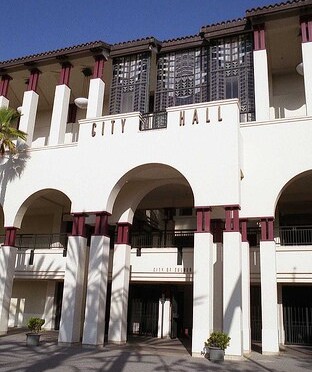
The housing crisis continued to be the central issue in front of the city council, with rent stabilization drawing intense community comment, and an item on support for a linkage fee for affordable housing completing the agenda. The budget was approved, and the fee was moved forward.
In a meeting to address the agenda items left over from March 8, 2021, the March 15 City Council meeting covered a presentation on the city budget by Chief Financial Officer Onyx Jones, and a presentation and discussion of a linkage fee.
On the budget presentation, revenues as of Dec 31, 2020 were $37,544, 301, and with the projected revenues for 2020/2021 slated at $107, 400, 455, the revised budget of $103,468,103 looked to be feasible.
Revenues included a property tax received at $582,000, a slightly more than 12% increase from last year. A sales tax revenue of $6.5 million, the business license tax and cannabis business tax are combined for $2.6 million, and the Transient Occupancy Tax and Commercial and Industrial Development Tax are posted at $1.7 million and $911,000 respectively.
Jones noted that “Revenue assumptions [show] conservative and steady annual growth of 3%”
The item listing $115, 850 for the new rent stabilization program drew a number of speakers to the virtual podium. Resident Mary Daval spoke to the issue, noting that rent control had been before the council on multiple occasions and on the ballot, “as you know, Measure B failed, leaving all of our rental protections in place. Now it falls to you [the council] to fund the office that will allow the city to enforce the measures it has already adopted.” Almost a dozen other speakers echoed her sentiments, pressing for the council to approve the expenditure for the office.
The motion to approve the budget passed unanimously.
A commercial linkage fee, also known as a jobs-housing linkage fee, creates a formula to offset new non-residential builds with the number of jobs to be generated, and the demand for housing, including affordable housing. A presentation by EPS Consultants, a land use economics consultation firm represented by Darin Smith and Julie Cooper, offered an in-depth study on how this could play out in Culver City.
Linkage fees currently in use in Los Angeles County vary from $3 to $13 per square foot, with variable rates for hotels, industrial, retail and office space. Most cities charge less than the maximum, trying to keep a balance on economic development and housing affordability. Santa Monica, West Hollywood and Beverly Hills, other cities that Culver City often looks towards for comparative policies, all use linkage fees.
The study recommended a fee of $5 per square foot, with exemptions for developments of less than 10,000 square feet. The fee would be reviewed every five years. Smith noted, “It would put Culver City among the pioneers of this type of affordable housing program.”
While Council member Goran Eriksson expressed concerns over a possible chilling effect on development, Council member Yasmin Imani McMorrin offered “This is just one tool in our toolbox to address the situation, and I think we should use it.”
Mayor Alex Fisch closed the discussion by remanding the matter to city staff, with Community Development Director Sol Blumenfled saying that “we can come back with a draft ordinance.” He also included that a shift on parking requirements will be before the council later this year, and noted that the issues were closely tied together.
The council will vote on the matter when it returns to the agenda.
Judith Martin-Straw
For further details on the discussion the meeting is available above on our YouTube feature.


Be the first to comment